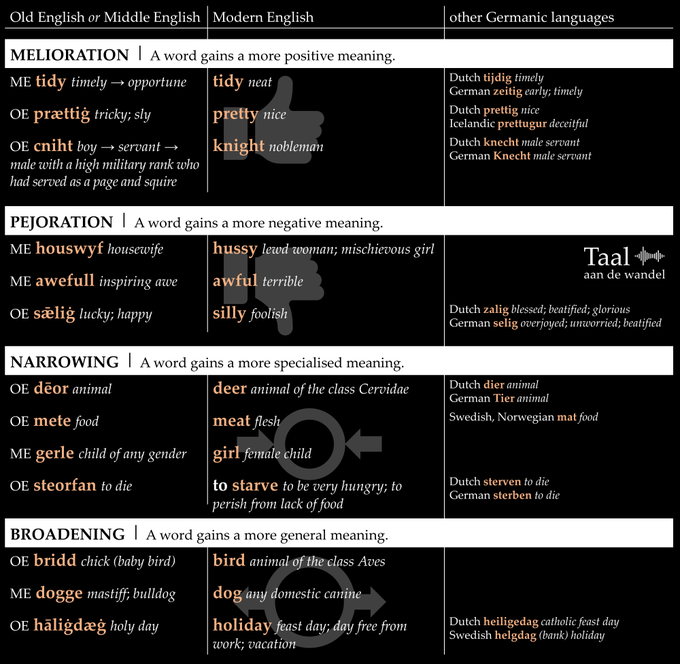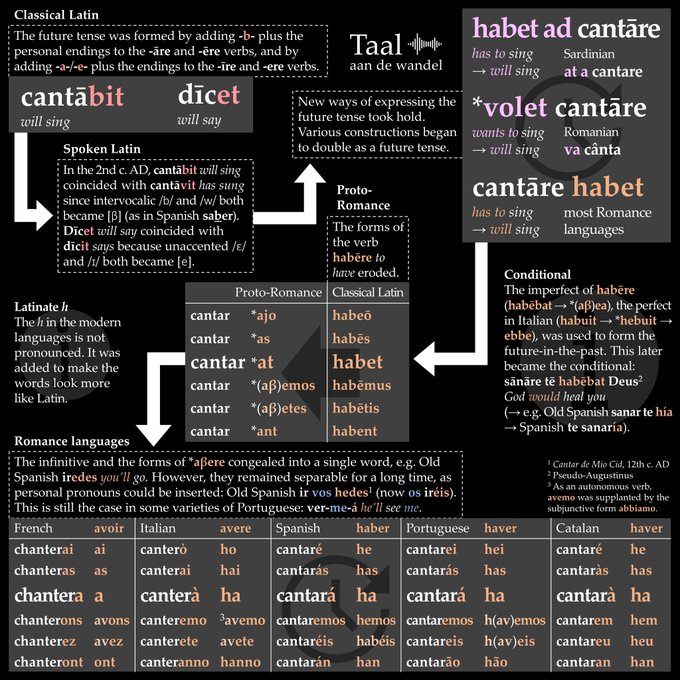
Yoïn van Spijk
@yvanspijk
Followers
19,108
Following
725
Media
1,419
Statuses
20,490
/'dʑowɪn/ • historisch taalkundige | historical linguist • dialectoloog | dialectologist • See my Tumblr for all graphics and videos:
Noord-Brabant
Joined May 2011
Don't wanna be here?
Send us removal request.
Explore trending content on Musk Viewer
VIVITE X LINGORM
• 345173 Tweets
Aqours
• 226596 Tweets
Aqours
• 226596 Tweets
#光る君へ
• 101126 Tweets
Finale
• 90163 Tweets
ラブライブ
• 71830 Tweets
DAOUOFFROAD ON STAGE
• 70141 Tweets
Power Of True Worship
• 69949 Tweets
Alfred Keter
• 61358 Tweets
Buddies
• 48804 Tweets
#バタバタ買い物バケーション
• 45450 Tweets
#도겸아_걱정없이_매일웃자
• 35808 Tweets
LET'S BE HAPPY WITH DOKYEOM
• 34666 Tweets
差し入れ
• 33538 Tweets
アフター
• 22325 Tweets
ブラックジャック
• 19842 Tweets
Leclerc
• 18530 Tweets
#だれかtoなかい
• 15487 Tweets
ふっかさん
• 13975 Tweets
アンコール
• 13209 Tweets
Last Seen Profiles
Pinned Tweet
Just because 2 words look alike and have a similar meaning doesn't mean they're etymologically related.
There has to be a common ancestor.
For example, 'much' looks like Spanish 'mucho', yet they stem from *mekilaz and 'multum' respectively.
Here are 12 pairs of false cognates:
90
529
3K
Portuguese now has numbered day names (e.g. 'terça feira', "third weekday", for Tuesday).
These were introduced by St. Martinho of Braga as he wanted to get rid of the pagan Roman names.
The Old Portuguese names were:
lũes
martes
mércores
joves
vernes
And a corrected graphic:
65
192
1K
@darthsidius1985
If the etymological dictionaries written by historical linguists don't know, ChatGPT, which is based on such sources, can't give a better answer.
1
11
541











































































































